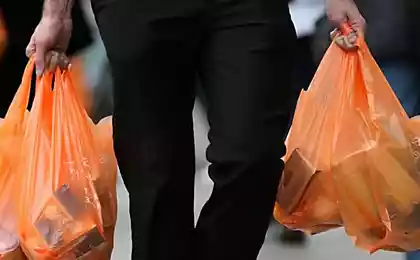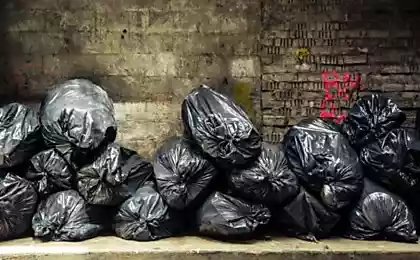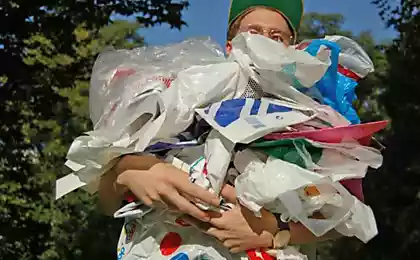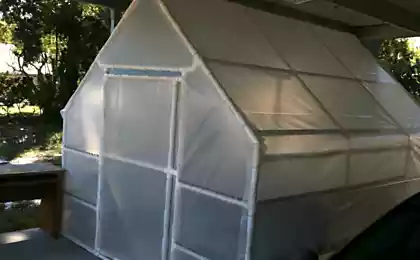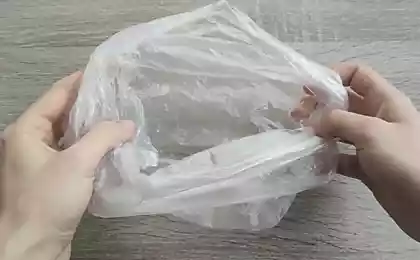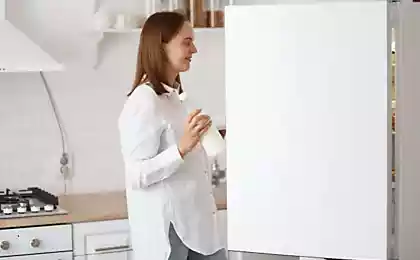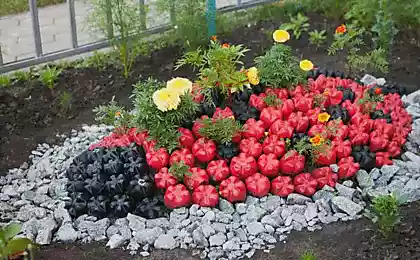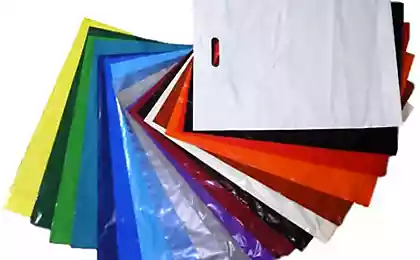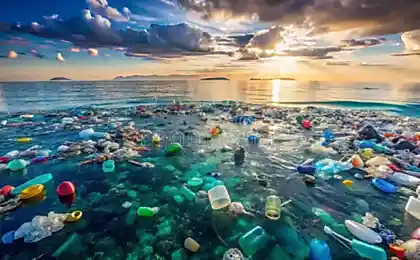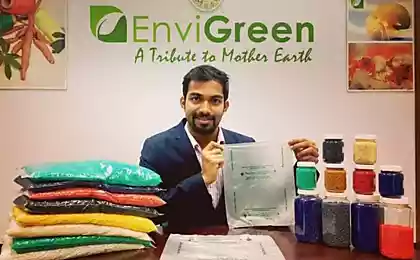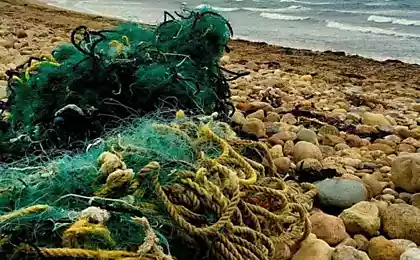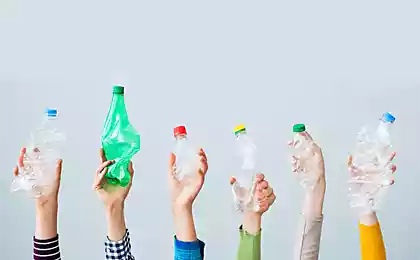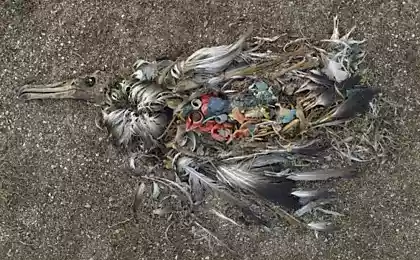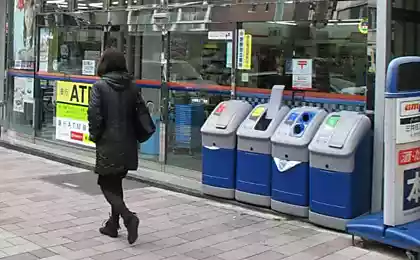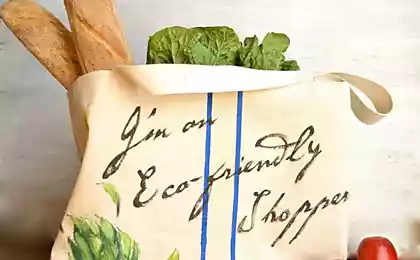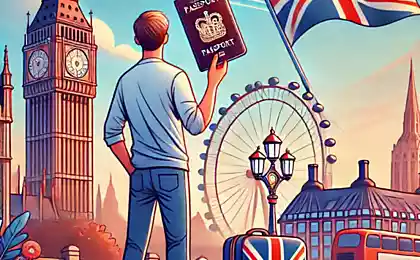785
The use of plastic bags in the UK has fallen by 85%
The reason - the introduction of tax 5 pence on packages in supermarkets
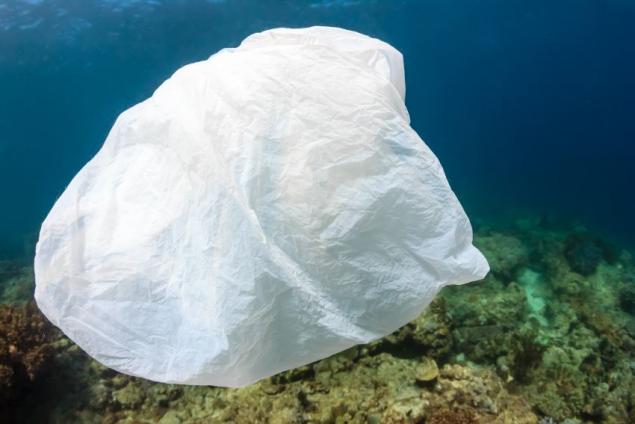
During the first half the British used a total of 500 million plastic bags. It seems to be a lot, but in the same period last year, 7 billion packages were used. This is unlikely to UK residents have become much more conscious in terms of environmental protection. A more effective tool than the dissemination of information about the dangers of plastic for natural ecosystems turned tax package. In October last year, the government introduced a tax on the use of packets at a rate of 5 pence.
This minimum tax, stores may ask for the package and a large sum. By introducing this tax, the Government stated that its size is too small to collect a significant amount in the budget. In addition, 5 pence per package - fee, which should not have a negative impact on businesses large and small stores. According to officials, should the tax was affected by the number of buyers of used packages. Officials were right - almost immediately after the introduction of tax buyers in the stores began to abandon the package. In the first half of this year, the English used by 85% of packets less than last year.
Data on the number of used packages is given by representatives of the Government, have spent the first assessment of the impact received in the last year of the tax. Officials believe that this year will be used by about 6 billion package is smaller than in 2015. The tax was introduced not just around the UK. First, the scheme tested in Scotland, and then - in Wales, and then - in Northern Ireland. When the officers noticed a positive effect, it became a national taxes.
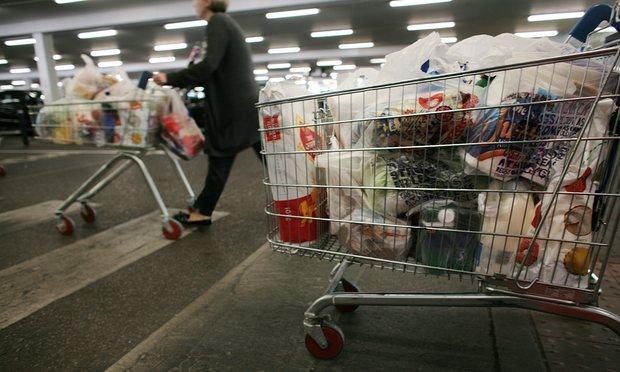
Plastic, plastic everywhere (Photo: Martin Godwin, Guardian)
Under the effect of the new tax law is not subject to all the shops, but only those where the working of the 250 workers made at full-time. In addition, the tax is not levied on paper bags. And there are exceptions for certain products, including meat, fish, drugs, prescription, seeds, flowers, live fish.
If other countries have introduced similar tax, it would probably have had a positive impact on the environment. Every year in the oceans and the sea gets 8 million tons of plastic. This material has a negative impact on marine ecosystems. The fact that the plastic for food products take many marine animals. The plastic body was detected in more than 31 species of marine mammals and birds 100 marine species. Many of them, scoring the stomach with plastic, die of hunger. Some birds with the same plastic feed juveniles, which is also dying of hunger, and damage to internal organs. Sea turtles are taking packages of edible jellyfish and plastic clog their stomachs.
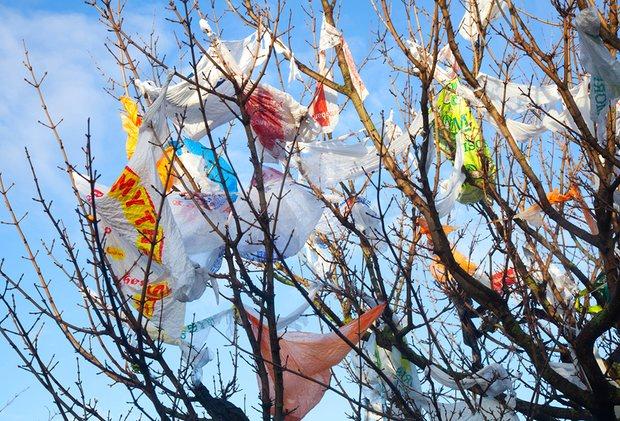
packages not only swim, but also know how to fly (Photo: Mar Photographics / Alamy)
In addition to large animals suffer and micro-organisms - for example, zooplankton. Not so long ago appeared on the network the video, which shows how the copepods (a type of zooplankton), passes through a plastic.
Usually, most of the species of zooplankton feed on algae. At the same copepod fairly well developed sensors that help determine the "edible" for the kind of algae. However, organisms pass through a plastic mikrochastichki apparently mistaking them for food. Special harm such particles do not cause the body to copepod, but in some cases plastic passing through the body of the body slows down. And in the case of plankton delay of a few days - it's exhaustion and starvation. Plus, algae, also enter the body copepod, start slowly digested, which means that the body gets fewer nutrients.
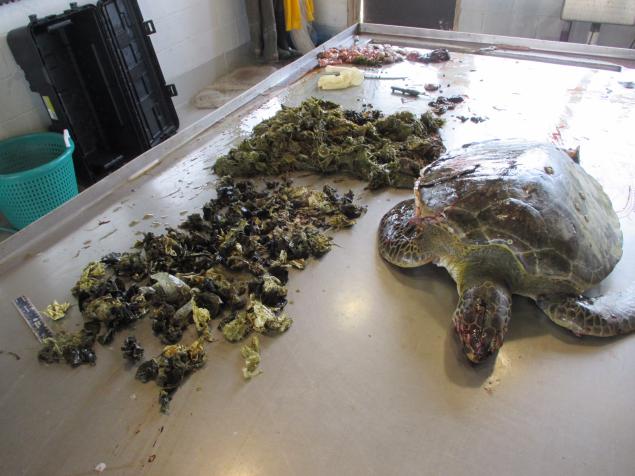
Anything left - it is plastic, eaten dead turtle
Zooplankton - the basis of the food chain of marine ecosystems. If it becomes less plankton, declining populations of large marine animals, destroyed ecosystems, the balance that was achieved for hundreds of thousands of years.
UK officials, assessing the effect of imposing a tax on packages, believe that the effect of the tax will be long-term. And this, according to them, means that the marine animals will be safer seas and oceans will become clearer, and future generations will not be surrounded by the mountains of plastic waste. Of course, in the seas and oceans is not only to get plastic bags - varieties of products from this material thousands. But most of all waste - it packs and bottles.
The tax has been decided to enter after the number of packets used by customers of supermarkets has increased: from 6 billion in 2010 to 7, 6 billion in 2015. In the year the average customer used 140 packages. 7, 6 billion plastic bags - is 61 000 tons of plastic waste.
Now only one of the networks in the United Kingdom, the number of packets that take buyers fell to 30 million per week. The proceeds for the sale of packages, some supermarket chains give to various projects on the environment.
According to the organization Marine Conservation Society, the UK engaged in cleaning the beaches, the amount of plastic waste on the coast rose by a third in just one year - from 2014 to 2015. Those plastic bottles, which are on the coast, was a 43% increase.
According to representatives of the organization packets - not the main problem. The source of a large number of plastic waste are coffee cups, plastic bottles, the excessive amount of packaging material that is used both by companies and individuals. May help reduce the number of these plastic products can also a new tax?
Source: geektimes.ru/post/279052/

During the first half the British used a total of 500 million plastic bags. It seems to be a lot, but in the same period last year, 7 billion packages were used. This is unlikely to UK residents have become much more conscious in terms of environmental protection. A more effective tool than the dissemination of information about the dangers of plastic for natural ecosystems turned tax package. In October last year, the government introduced a tax on the use of packets at a rate of 5 pence.
This minimum tax, stores may ask for the package and a large sum. By introducing this tax, the Government stated that its size is too small to collect a significant amount in the budget. In addition, 5 pence per package - fee, which should not have a negative impact on businesses large and small stores. According to officials, should the tax was affected by the number of buyers of used packages. Officials were right - almost immediately after the introduction of tax buyers in the stores began to abandon the package. In the first half of this year, the English used by 85% of packets less than last year.
Data on the number of used packages is given by representatives of the Government, have spent the first assessment of the impact received in the last year of the tax. Officials believe that this year will be used by about 6 billion package is smaller than in 2015. The tax was introduced not just around the UK. First, the scheme tested in Scotland, and then - in Wales, and then - in Northern Ireland. When the officers noticed a positive effect, it became a national taxes.

Plastic, plastic everywhere (Photo: Martin Godwin, Guardian)
Under the effect of the new tax law is not subject to all the shops, but only those where the working of the 250 workers made at full-time. In addition, the tax is not levied on paper bags. And there are exceptions for certain products, including meat, fish, drugs, prescription, seeds, flowers, live fish.
If other countries have introduced similar tax, it would probably have had a positive impact on the environment. Every year in the oceans and the sea gets 8 million tons of plastic. This material has a negative impact on marine ecosystems. The fact that the plastic for food products take many marine animals. The plastic body was detected in more than 31 species of marine mammals and birds 100 marine species. Many of them, scoring the stomach with plastic, die of hunger. Some birds with the same plastic feed juveniles, which is also dying of hunger, and damage to internal organs. Sea turtles are taking packages of edible jellyfish and plastic clog their stomachs.

packages not only swim, but also know how to fly (Photo: Mar Photographics / Alamy)
In addition to large animals suffer and micro-organisms - for example, zooplankton. Not so long ago appeared on the network the video, which shows how the copepods (a type of zooplankton), passes through a plastic.
Usually, most of the species of zooplankton feed on algae. At the same copepod fairly well developed sensors that help determine the "edible" for the kind of algae. However, organisms pass through a plastic mikrochastichki apparently mistaking them for food. Special harm such particles do not cause the body to copepod, but in some cases plastic passing through the body of the body slows down. And in the case of plankton delay of a few days - it's exhaustion and starvation. Plus, algae, also enter the body copepod, start slowly digested, which means that the body gets fewer nutrients.

Anything left - it is plastic, eaten dead turtle
Zooplankton - the basis of the food chain of marine ecosystems. If it becomes less plankton, declining populations of large marine animals, destroyed ecosystems, the balance that was achieved for hundreds of thousands of years.
UK officials, assessing the effect of imposing a tax on packages, believe that the effect of the tax will be long-term. And this, according to them, means that the marine animals will be safer seas and oceans will become clearer, and future generations will not be surrounded by the mountains of plastic waste. Of course, in the seas and oceans is not only to get plastic bags - varieties of products from this material thousands. But most of all waste - it packs and bottles.
The tax has been decided to enter after the number of packets used by customers of supermarkets has increased: from 6 billion in 2010 to 7, 6 billion in 2015. In the year the average customer used 140 packages. 7, 6 billion plastic bags - is 61 000 tons of plastic waste.
Now only one of the networks in the United Kingdom, the number of packets that take buyers fell to 30 million per week. The proceeds for the sale of packages, some supermarket chains give to various projects on the environment.
According to the organization Marine Conservation Society, the UK engaged in cleaning the beaches, the amount of plastic waste on the coast rose by a third in just one year - from 2014 to 2015. Those plastic bottles, which are on the coast, was a 43% increase.
According to representatives of the organization packets - not the main problem. The source of a large number of plastic waste are coffee cups, plastic bottles, the excessive amount of packaging material that is used both by companies and individuals. May help reduce the number of these plastic products can also a new tax?
Source: geektimes.ru/post/279052/
StarCraft Universe - new MMO game based on the world StarCraft
Perhaps he found the tomb of Genghis Khan
